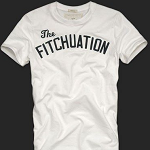A Product Placement “Situation”
Abercrombie & Fitch released a press statement two weeks ago entitled, “A Win-Win Situation,” in which they offered to pay Michael “The Situation” Sorrentino and his Jersey Shore castmates a “substantial” amount of money to stop wearing their clothes in public. A&F’s statement said, “We are deeply concerned that Mr. Sorrentino’s association with our brand could cause significant damage to our image…. We understand that the show is for entertainment purposes, but believe this association is contrary to the aspirational nature of our brand, and may be distressing to many of our fans.”
While my initial reaction was to laugh — really hard — my summer spent at AB&C has taught me that this “situation” brings up many important questions about branding, marketing and PR strategies. Companies kill to get their products on big TV shows, but what do you do when an unplanned product placement threatens to ruin your audience’s perception of your brand? For A&F, whose brand is focused on attractive young prepsters, it must’ve been painful to see their clothes on an almost-30-year-old who got famous by referring to himself as the “ultimate guido.”
This kind of national attention is like a powerful fire: amazing when contained, disastrous when out of control. A&F’s fire may be spreading toward disastrous. A&F stocks plummeted eight percent on Wednesday, the day after the press release hit the media. In addition, the Jersey Shore gang has chimed in via Twitter to offer their thoughts about the brand. While “The Situation” stayed fairly conservative in his critiques, tweeting, “Looks like Abercrombie got themselves into a Situation,” castmate Vinny Guadagnio started a “#lasttimeiworeabercrombie” hashtag that rapidly became a trending topic. A notorious example of this kind of celebrity backlash occurred when the producers of Cristal Champagne lamented its association with the “bling” lifestyle of hip-hop artists in an Economist interview. In response, the rapper Jay-Z vowed to never again drink the champagne, promote it in his songs or serve it in his nightclubs. Other artists followed in his footsteps, as did their legions of fans.
So what have we learned? Company brands aren’t like celebrities — they don’t make more money the more notorious they become. People may watch a show with a celebrity they detest but they’ll rarely buy something from a company they don’t like. “The Situation” wearing Abercrombie & Fitch’s clothes may not have been great for its brand, but the clothing company’s very public dressing down of a group of very public people was worse. Listen up, A&F: It’s not enough to have a cool brand. Ya gotta have a likable company.





